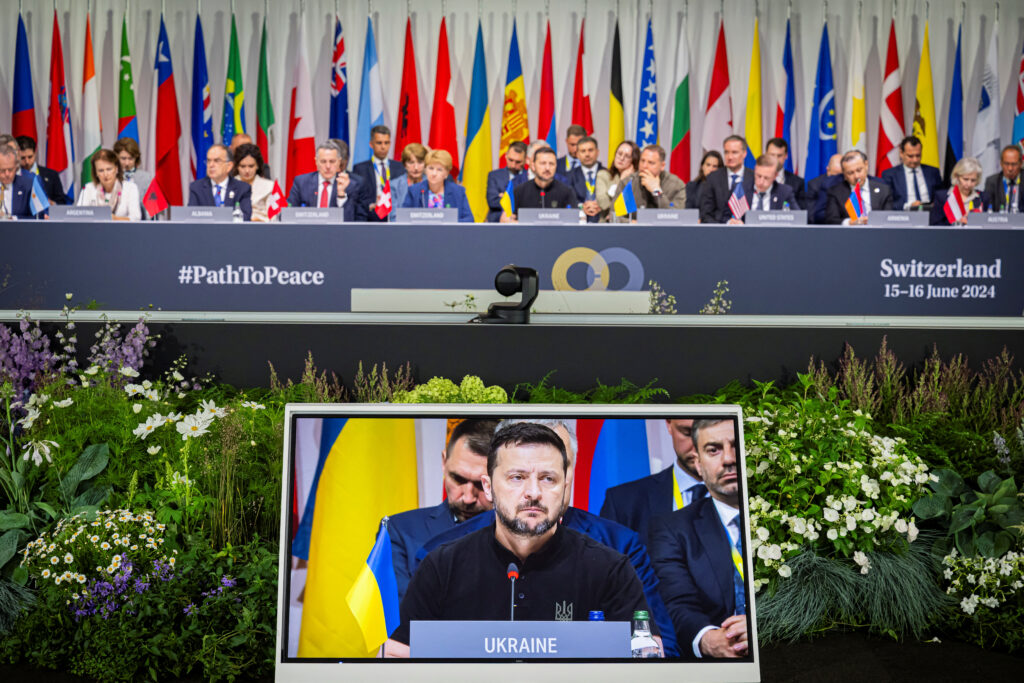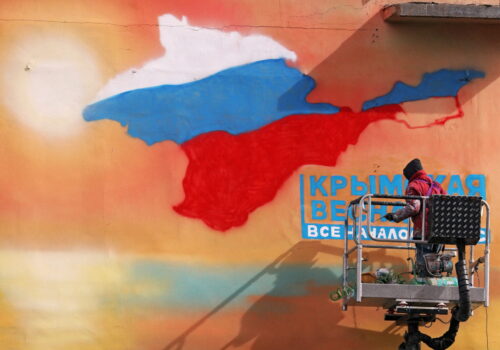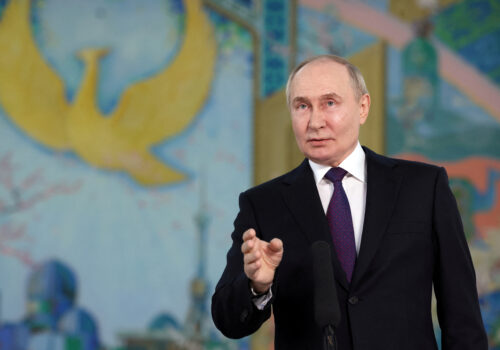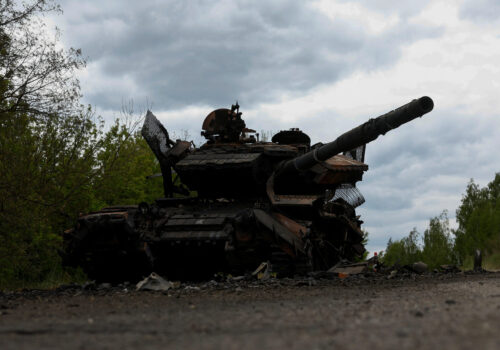Over the weekend of June 15-16, almost one hundred representatives of countries from around the globe and several international organizations gathered in Switzerland for a Summit on Peace in Ukraine. Described by some commentators as “the largest diplomatic effort” in Ukraine’s history, the summit was designed to rally international support for the Ukrainian vision of a peaceful, sustainable, and just settlement to the war sparked by Russia’s invasion.
While the event produced some encouraging signals and shone a light on how Russia’s invasion affects the broader international community, it did not produce any major diplomatic breakthroughs. Instead, the summit represented a small but significant step forward in what looks set to be a far longer peace process.
The absence of many leading nations from the Global South did much to weaken the summit’s potential impact, suggesting that Ukrainian diplomats still have much work to do at the bilateral level. Significantly, key participating countries including Brazil, India, South Africa, and Saudi Arabia chose not to sign the official summit communique supporting Ukraine’s territorial integrity. Since 2022, these countries have all been hesitant to back Ukraine or openly condemn Russia’s invasion.
Stay updated
As the world watches the Russian invasion of Ukraine unfold, UkraineAlert delivers the best Atlantic Council expert insight and analysis on Ukraine twice a week directly to your inbox.
The event in Switzerland came during a period of intense diplomatic activity for Ukraine. On the eve of the peace summit, G7 leaders agreed to provide Ukraine with a $50 billion loan financed by interest on Russian assets that remain frozen in Europe and the US. On the sidelines of the G7 meeting, the US and Ukraine signed a landmark ten-year bilateral security agreement. During the peace summit itself, Ukrainian President Volodymyr Zelenskyy was also able to hold bilateral meetings with a number of leaders from Global South nations including Argentina, Chile, and Côte d’Ivoire.
Ukraine came to the summit hoping to galvanize international support for President Zelenskyy’s ten-point peace plan. In particular, Kyiv officials sought to emphasize the importance of advancing nuclear safety, protecting food security, releasing prisoners of war, and returning Ukrainian children abducted by Russia since the start of the full-scale invasion. In a broader sense, the event also aimed to keep ongoing Russian aggression against Ukraine in the international spotlight.
Ultimately, seventy-eight countries signed the final communique recognizing that respect for Ukraine’s territorial integrity and sovereignty must serve as the basis for any future peace agreement. European Commission President Ursula von der Leyen sought to downplay expectations regarding the event, noting that peace could not be achieved in a single step. The summit was not a peace negotiation because Putin is not serious about ending the war, she commented. “He is insisting on capitulation. He is insisting on ceding Ukrainian territory, even territory that today is not occupied by him. He is insisting on disarming Ukraine, leaving it vulnerable to future aggression. No country would ever accept these outrageous terms,” stated von der Leyen in reference to a rival peace plan unveiled by Russian President Vladimir Putin on the eve of the Swiss summit.
Eurasia Center events

Russia did not receive an invitation to participate in the peace summit. Crucially, China also chose not to attend. US National Security Advisor Jake Sullivan suggested Putin had asked China to turn down Ukraine’s invitation. In the build-up to the event, President Zelenskyy also accused Beijing of working to discourage others from attending Ukraine’s peace initiative. Meanwhile, a number of participating countries from the Global South spoke in Switzerland of the need to involve Russia in any future peace process.
While the Kremlin’s apparent spoiling tactics failed to derail Ukraine’s peace initiative entirely, Russian influence did nevertheless loom large over the Swiss summit and is clearly still a significant factor. China’s decision not to back the event was arguably even more important, with many observers arguing that Beijing’s stance succeeded in preventing the emergence of a more global consensus on the path toward peace in Ukraine.
Nevertheless, the participation of numerous countries regarded as being on good terms with the Kremlin underlined the potential of this peace initiative, with the likes of Qatar, Hungary, and Serbia all signing the final communique. While some had hoped for a more meaningful outcome, this modest progress should be enough to convince Kyiv officials and the country’s partners that additional diplomatic efforts in this direction are worthwhile and may yet produce results.
Mercedes Sapuppo is a program assistant at the Atlantic Council’s Eurasia Center.
Further reading
The views expressed in UkraineAlert are solely those of the authors and do not necessarily reflect the views of the Atlantic Council, its staff, or its supporters.

The Eurasia Center’s mission is to enhance transatlantic cooperation in promoting stability, democratic values and prosperity in Eurasia, from Eastern Europe and Turkey in the West to the Caucasus, Russia and Central Asia in the East.
Follow us on social media
and support our work
Image: Ukrainian President Volodymyr Zelenskyy pictured on a monitor as he attends the plenary session of the Summit on peace in Ukraine, in Stansstad near Lucerne, Switzerland, June 16, 2024. (Urs Flueeler/Pool via REUTERS)




